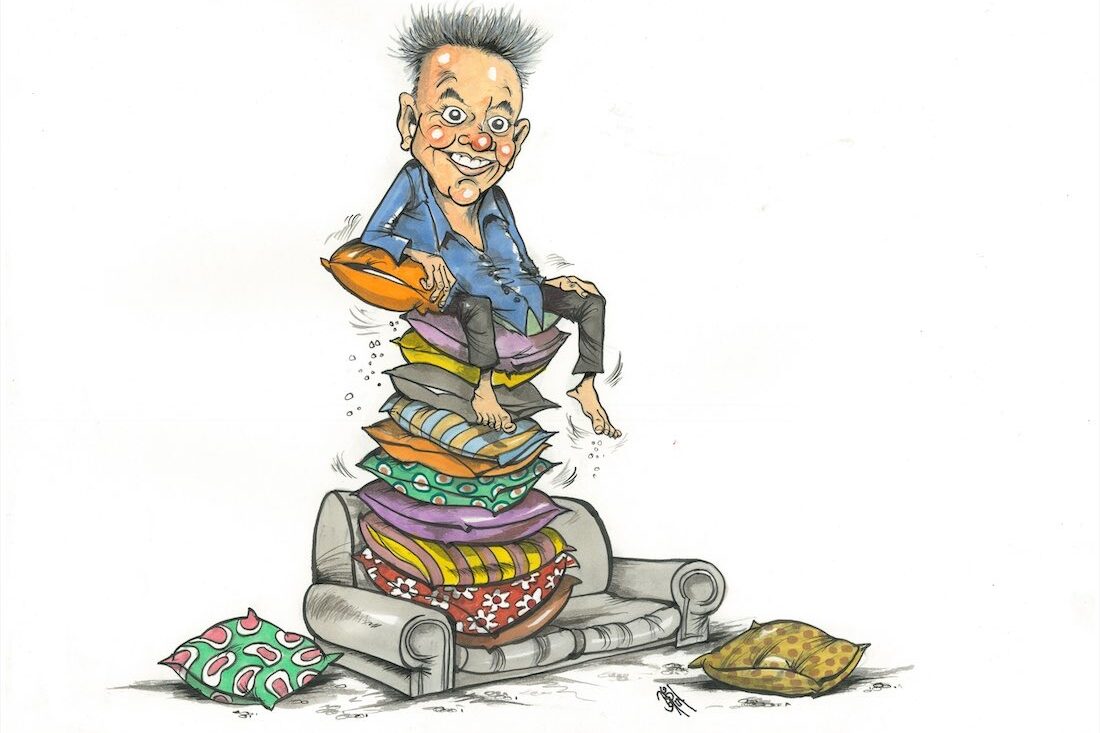
Wine columnist RICHARD CALVER muses about the downsides of drinking alone…
I’M not usually a fan of country music, but I must give a big thumbs up to Carrie Underwood’s catchy “Drinking Alone”, about a lovelorn woman sitting in a bar staring at a man and then indicating that they should be “drinking alone (pause) together”.

This is a fine example of a literary device that is broadly labelled “contrast” but falls into a number of sub-categories. In this instance, there is antithesis because the statement in the refrain contains two opposite ideas.
There is also an element of paradox in this plangent song because the contrast between drinking alone and drinking together doesn’t make sense until we understand the context.
The projection of her own misery on the other person in the bar means she longs not to be drinking alone but drinking alone, together, with the other misery guts:
Drownin’ the pain is better
With somebody else who got problems
We ain’t gonna solve ’em
But misery loves company
Tonight all I need is a stranger
This tune came to mind as I was pondering the fact that, as retirement has coiled itself around me, I often take one or two glasses of wine with my meal at night and find myself drinking alone. This usually happens when I use wine as a condiment: white in risotto, red in a beef casserole or in a spaghetti sauce, for example. These are usually foods that I can freeze or that I don’t mind eating at least two days in a row.
Wine categorically enhances the flavours of food. This does not mean drowning the food in a cascade of wine but, as with other condiments, finding an appropriate level of wine to add that gets the food to the next level. It’s a question of experimenting and, just as with the drinking of wine, finding out what best suits your taste.
The addition of wine in the food means that there is wine “left over” or, in fact, ready to drink with the meal that contains a glass or two of the same wine.
It is then a pleasure, an epicurean adventure, to ensure that the food and the wine complement each other. If they don’t, next time you make adjustments.
Having “left over” wine was not a principal reason for drinking alone that I discovered on a website where the main thrust of the messages seems to be that of helping alcoholics (alcoholrehabhelp.org/blog/drinking-alone). It says the main reasons for drinking alone are:
- Stress.
- Anxiety or worries.
- Depression.
- Anger.
- Trauma.
- Reducing alcohol withdrawal symptoms.
And then further down from this confronting list is the point I was trying to make: you drink alone because you like the taste of the drink. Phew!
But then another admonition: “Drinking alone isn’t always a sign of alcoholism. However, if you find yourself drinking alone regularly or excessively, it could signify a more serious problem.”
That “serious problem” I possess of regularly drinking alone is apparently underlined by depressive tendencies.
The website proclaims: “Solitary drinking is associated with a higher likelihood of depressive symptoms. Depression can cause people to drink alone.”
So, if you’re depressed you’re more likely to drink alone and if you drink alone you’re more likely to become depressed. That seems to be a spiral that once you’re caught up in it’s difficult to escape, uh, just like drinking alone?
Oh well, I probably just need to find someone where I can share any misery that is engendered by solitary drinking (none palpable to date) and “drink alone… together”.
Who can be trusted?
In a world of spin and confusion, there’s never been a more important time to support independent journalism in Canberra.
If you trust our work online and want to enforce the power of independent voices, I invite you to make a small contribution.
Every dollar of support is invested back into our journalism to help keep citynews.com.au strong and free.
Thank you,
Ian Meikle, editor




Leave a Reply